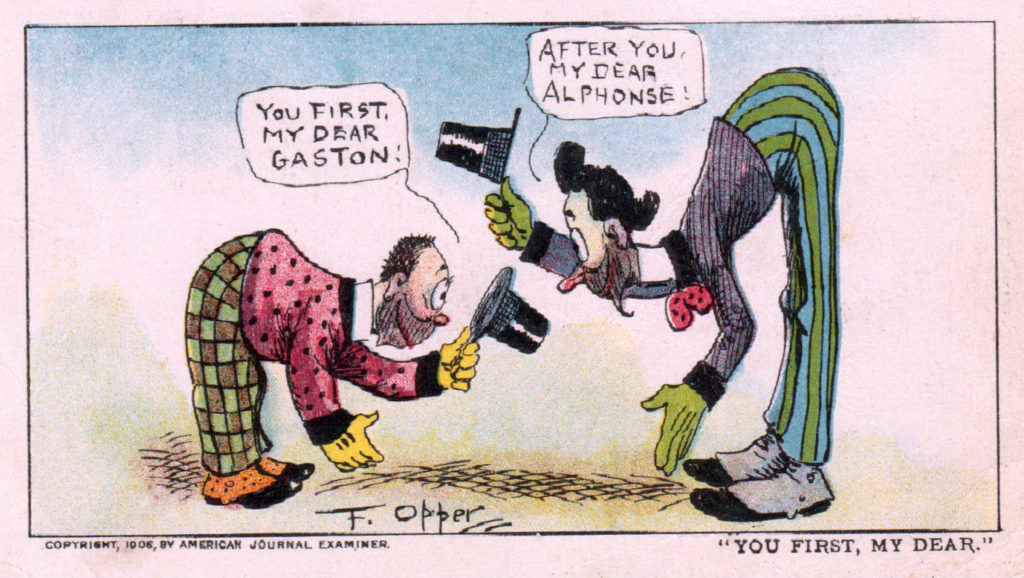By Yvonne Milosevic
We’d all like to think of ourselves as generous. But that’s not always easy to practice IRL. Some acts of spontaneous generosity can leave us with the short end of the stick. Like on an airplane, when you let your S.O. sit by the window while you get stuck in the sucky middle seat. Or that grudgy feeling you have when the last roll leaves the breadbasket straight for your dining companion’s pie hole. But hey, at least we get to feel good about our magnanimity. What if there was a way to keep the positive feelies and still get the better end of the bargain?
Turns out, we can. The University of Chicago’s Michael Kardas and Alex Shaw, and UCLA Anderson’s Eugene M. Caruso, have discovered the secret of how to both appear generous and come out ahead materially.
In their paper How to Give Away Your Cake and Eat it Too, the researchers created several scenarios in which one person can either act selfishly or generously, but instead passes that power of choice to another person. Now the second individual must choose whether to respond selfishly or generously.
They call it abdicating a resource allocation decision. In each instance, one of the options clearly had greater value. That way, both participants knew which choice was selfish and which was generous.
Heads-up: The theory doesn’t apply to that classic example of urging your partner to choose where to go for dinner and then poo-pooing their every suggestion. Giving up control of these types of decisions definitely does not come off as generous. More like, exasperating.
I’ll pass on the power, thankyouverymuch
In eight different studies, these researchers tested the theory that when you give up your right to choose to someone else, you’re more likely to receive the better of the two options at hand.
The reasoning is twofold. First, it comes off as super generous when you give the other person the power to choose. That person then feels motivated to respond in an even more generous fashion, and voila! They give you the more valuable resource instead.
Abdication likewise appears to provide benefits and entails very little cost. At worst, the abdicator will sacrifice a desirable resource and appear generous. At best, they will receive the desirable resource and still seem generous, the researchers found.
They ran the studies among strangers and with participants who knew each other. No matter the relationship, the person abdicated to usually chose to be generous. In one study, the act of giving away choice was viewed nearly as generous as when the first participant made the more generous decision to begin with.
The next time you find yourself in the position to hand out a desirable resource but don’t want to appear selfish, try punting the decision to the other person. As these researchers discovered, “Those who abdicate, it seems, not only sow the reputational rewards of generosity, but quickly harvest the material rewards of reciprocity as well.”



